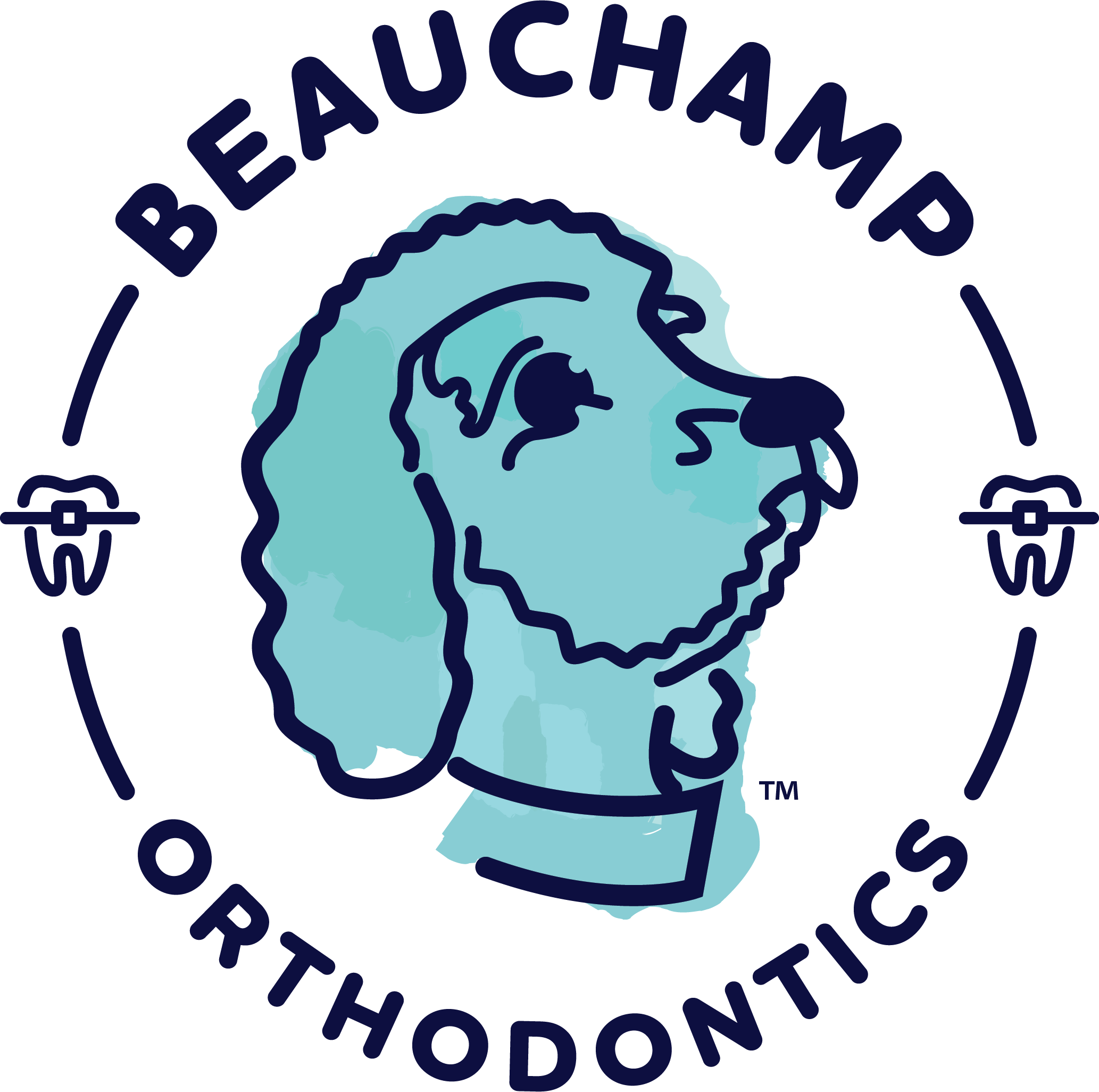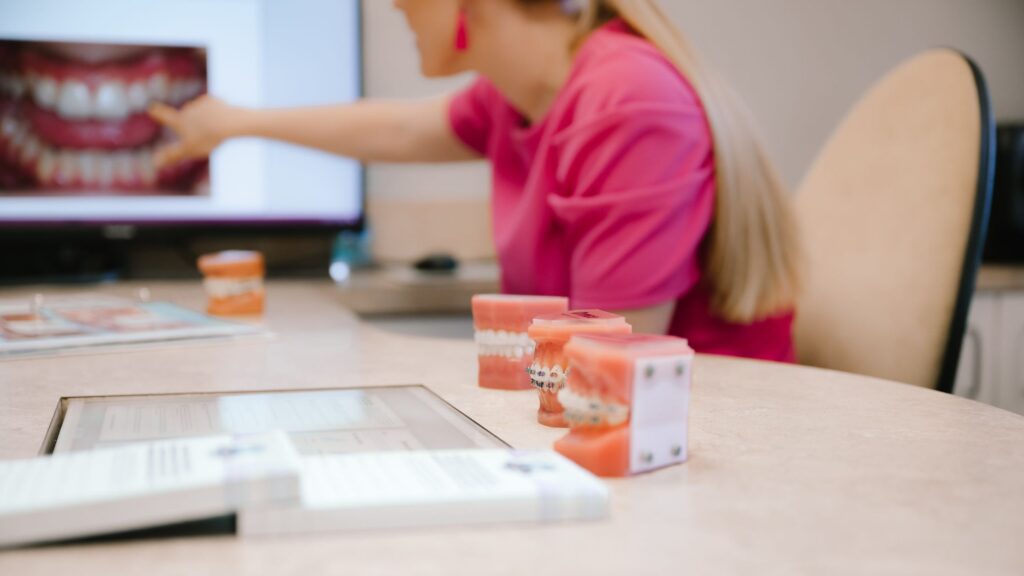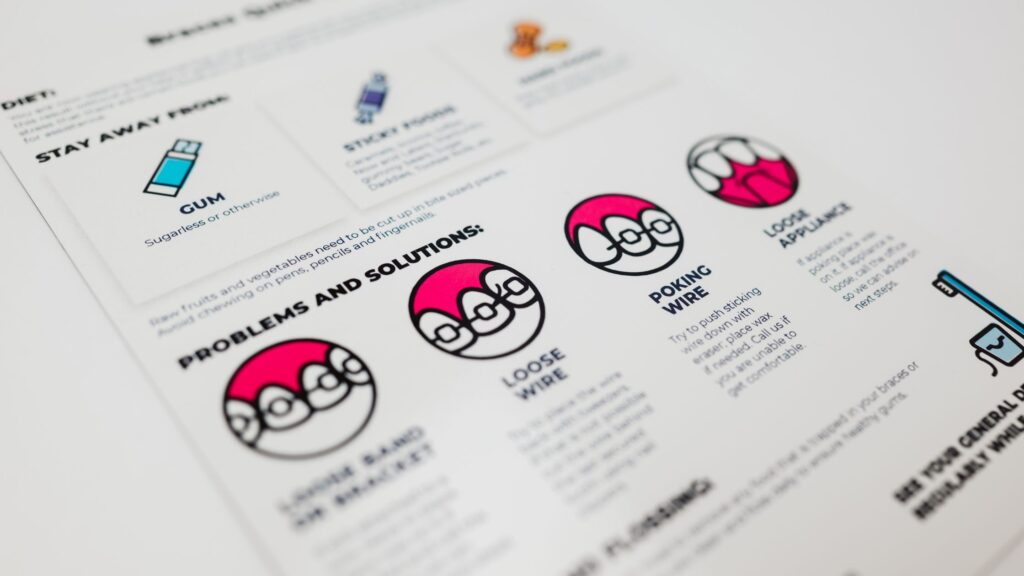Many children will never need braces, but it’s important to have all the facts at the right time.
Like everyone, all kids will go through a full set of deciduous teeth, also known as baby teeth, before permanent teeth start to come in. These teeth are exactly like the permanent teeth, just a little bit smaller. Eventually, they come out on their own so the second set of teeth can “erupt” behind them.
Lots of parents don’t know this, but a young child might actually need orthodontic treatment before their adult teeth show up. That’s because the way the baby teeth come in can warn your orthodontist that there won’t be enough space for the adult teeth when they arrive. And that’s a problem!
If there’s not enough space in the jaw for the adult teeth, they can come in sideways or fail to erupt from the gums. That’s called an impacted tooth. Not only is it very painful, but it usually requires dental surgery to fix.
So, how do you know if you need to consider braces – especially if your child is still very young?
Let’s look at the signs:
Signs Your Child May Need Braces
Every child is different, but most who will need braces often have at least one of these signs:
Difficulty Speaking
The early years are crucial for language acquisition, and children who have an easy time pronouncing words will be at an advantage. Children can experience crowding and other problems with their first set of teeth, and that can be a sign they will need braces in the future. Stay in touch with your child’s teacher to make sure he or she meets goals for language fluency. Listen carefully for issues like lisps that can be caused by orthodontic issues.
Problems Chewing
Chewing is another routine task we do every day that depends on strong and healthy teeth. Children can have trouble chewing in many different ways, but they might not always express their discomfort. Being so little, it might not even occur to them that anything unusual is happening. Be especially attentive for signs of “picky eating,” which can be your child’s way of avoiding foods that cause pain – especially hard or sticky foods.
Tooth Gaps or Misalignment
Tooth gaps and misalignment can be present in the baby teeth, too! Of course, it might not be obvious until most or all of the baby teeth emerge. Remember that as soon as a child’s first tooth appears – usually within about six months of age – you should start getting them used to brushing. Brushing is still good for teeth, no matter if you use toothpaste or not. If you notice misaligned teeth, get ready to talk to an orthodontist!
Dr. Beauchamp’s Most Important Advice for Parents of Young Children
The most important thing to know about kids’ orthodontic health?
It’s simply this: They should see an orthodontist for the first time at age seven!
That’s a lot later than the first time they should see a dentist, around twelve months of age. But it’s every bit as vital to their future. During your child’s first orthodontic visit, your family orthodontist will evaluate the jaw and teeth to make sure there’s plenty of space for the future adult teeth!
If there’s any sign of difficulty, Dr. Beauchamp might recommend a two-phase treatment.
What Is Two-Phase Orthodontic Treatment for Kids?
Some kids will never need braces, but for those who do, early orthodontic care makes a big difference.
With two-phase treatment, which begins around 7-10 years of age, a palate expander is used to create enough space for the permanent teeth. The process is completely painless and natural. Starting at the right time can help children avoid tooth removal or jaw surgery in the future.
After the permanent teeth arrive, the second phase of treatment begins. That’s when metal braces or clear braces are used to correct any gaps or misalignment in the teeth. Braces are necessary for the most severe orthodontic problems, but some kids can even qualify for clear plastic aligners instead.
Two-phase treatment is great for kids since it helps ensure teeth are strong, straight, and healthy. Not only will growing children feel more confident, but it’ll be much easier for them to care for their teeth in the future. That gives them an advantage that will last all throughout life!
Getting started with early orthodontic care is easier than you might think. Just book your consultation online and get all your questions answered by Dr. Beauchamp. We look forward to meeting your family soon!



